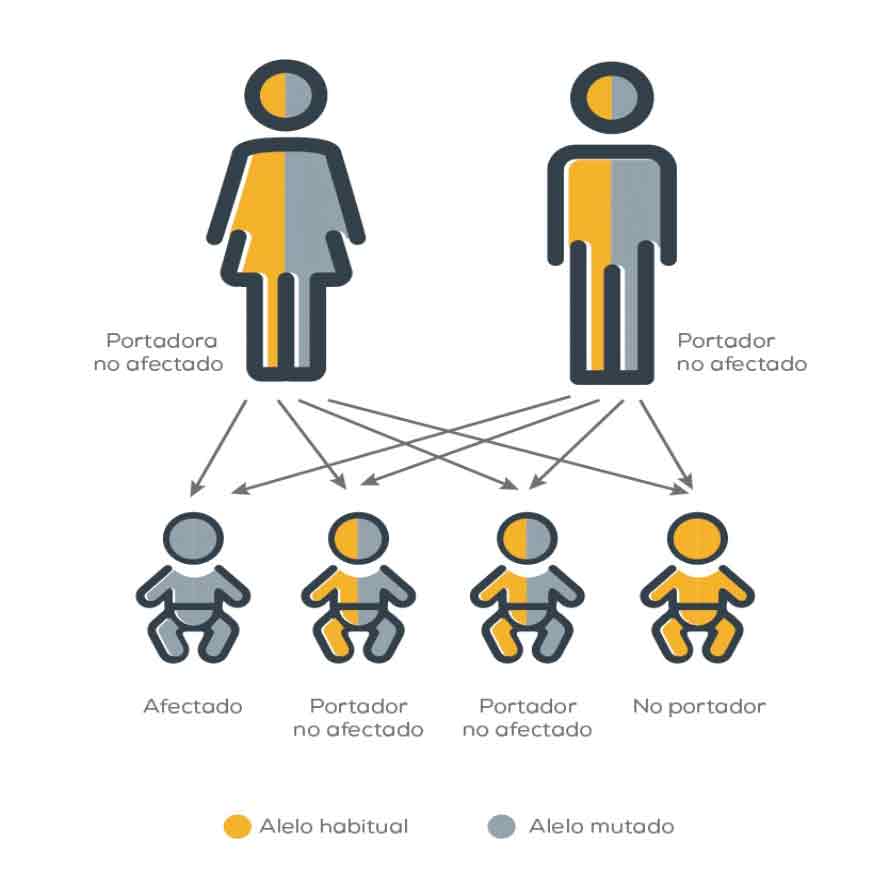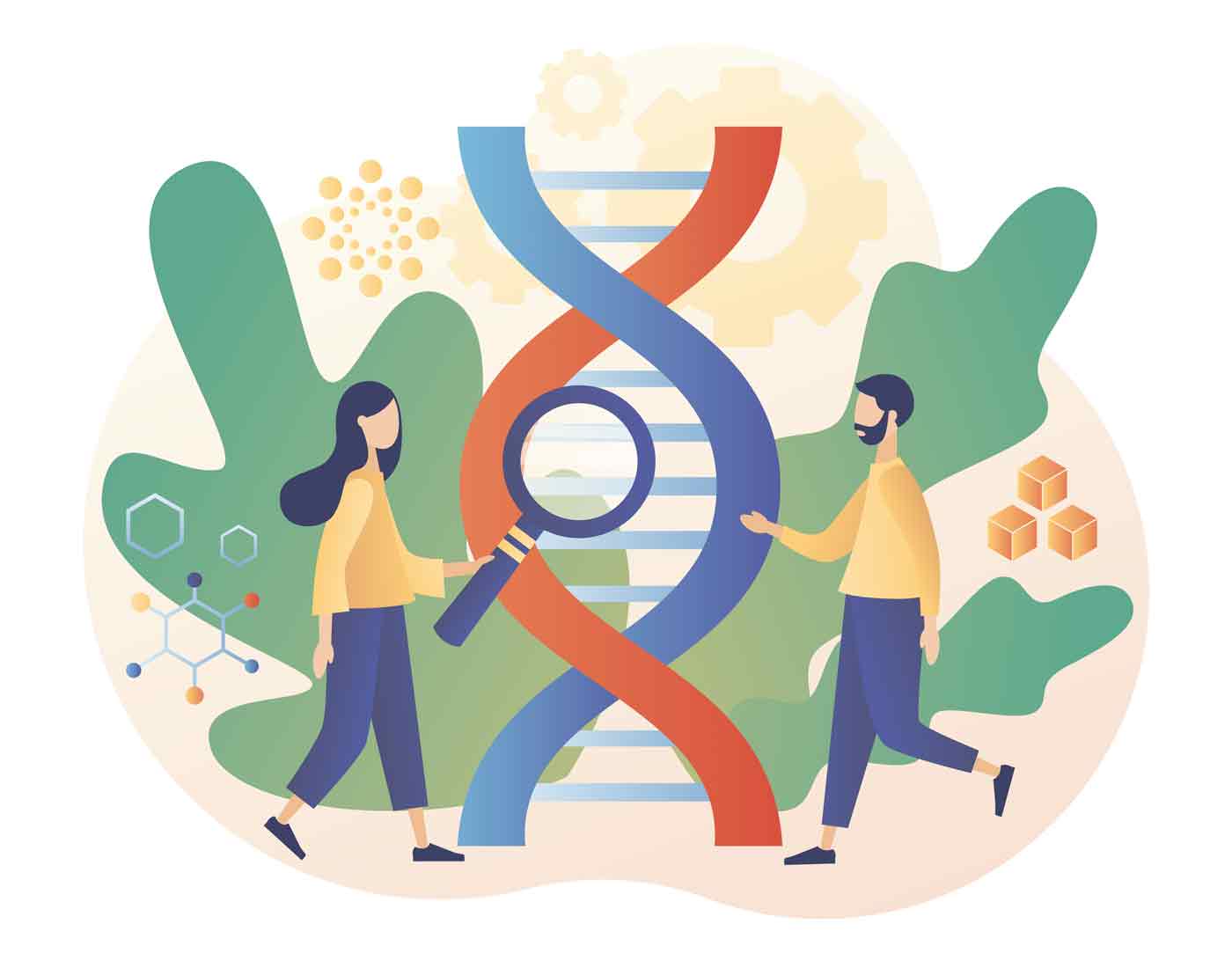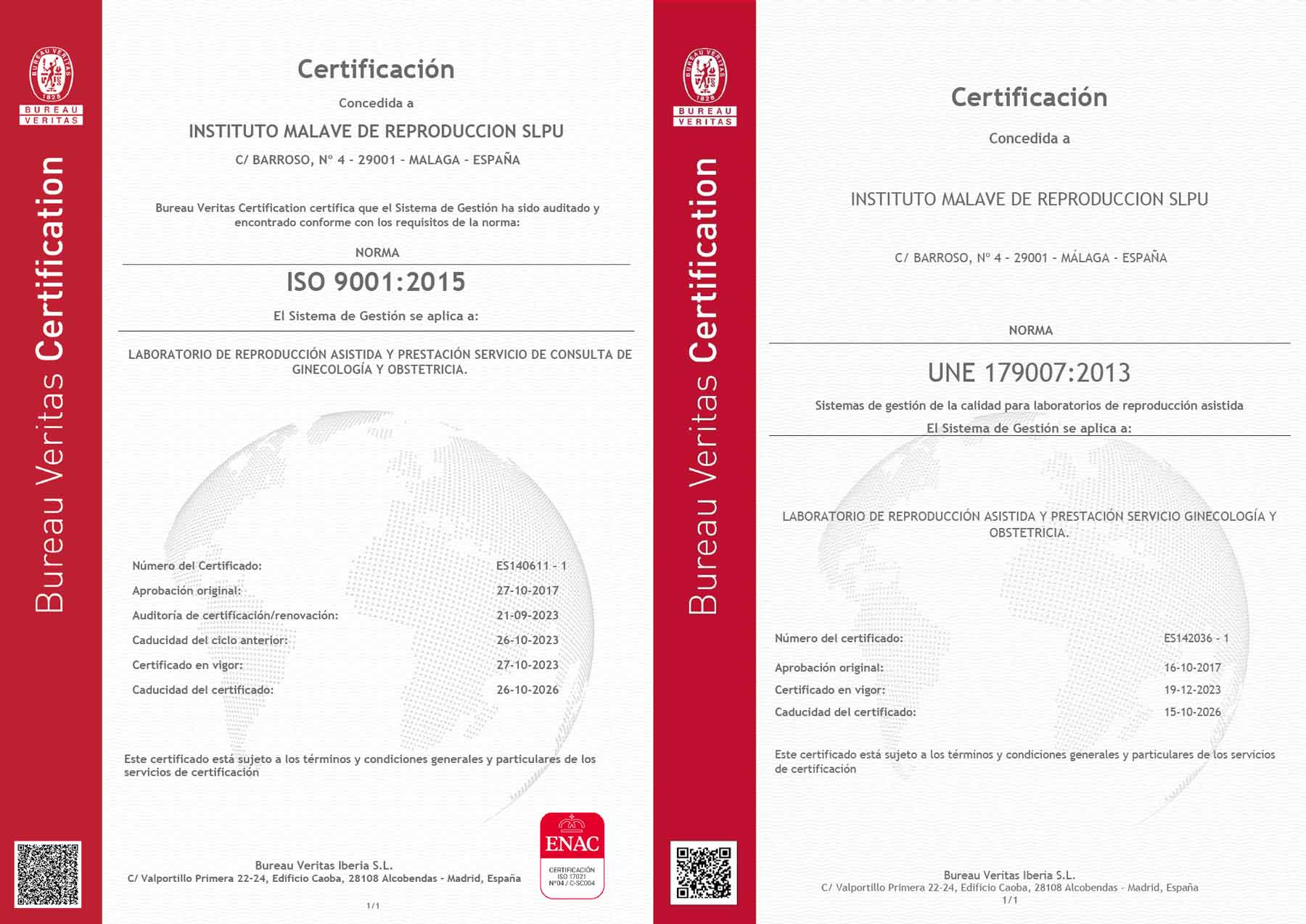The genetic compatibility test, carrier test or recessive disease test is a test to study the genetic material of a person and is focused on the detection of mutations that can cause more than 500 recessive genetic diseases with different impact on the quality of life of patients. Autosomal recessive diseases occur when two mutated copies (or alleles) of the same gene are inherited. This requires that both the father and the mother are carriers of the disease, i.e. both have an altered copy of the gene and, by chance, both have passed the altered copy on to their child. When both partners carry recessive mutations in the same gene, there is a 25% chance that their children will have the disease, a 50% chance that they will be carriers but not have the disease, and a 25% chance that they will be mutation-free (non-carriers).

Autosomal recessive disease

X-linked recessive disease
This compatibility test is suitable for all couples, whether they have fertility problems or not. In the event that a couple takes the test and know before conception that both are carriers of the same disease or the mother is a carrier of an X-linked disease, a pre-implantation genetic diagnosis treatment (PGT-M) would have to be performed in order to prevent the offspring from suffering from the disease. In addition, the compatibility test is one of the key factors in selecting the appropriate oocytes or donor sperm for each patient's characteristics.


